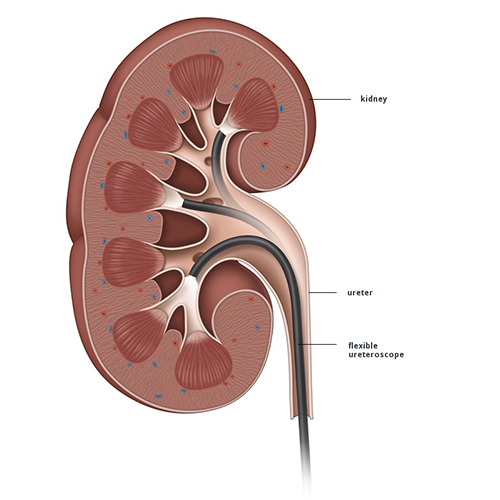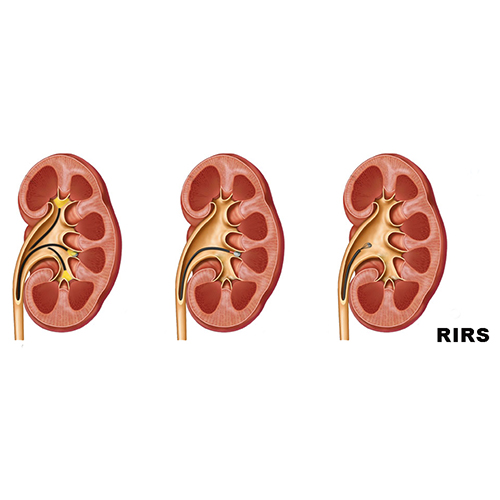Retrograde intrarenal surgery
RIRS (Retrograde intrarenal surgery)
Retrograde intrarenal surgery (RIRS) is a newer technique of removal of stones.
Retrograde intrarenal surgery (RIRS) is a procedure to removal stone from kidney by using a fiberoptic endoscope.
RIRS Surgery allows the surgeon to perform surgery inside the kidney without making an incision.
The RIRS can be effective for difficult-to-treat cases, like Tumors, Patients with bleeding disorders and Stones in children.
Reason for RIRS
- Stones too large for ESWL (lithotripsy).
- Patients with gross obesity.
- Strictures or Tumors.
- Stones in children.
- Patients with bleeding disorders.
Procedure of RIRS
RIRS is performed by a specialist, urologist with special expertise in RIRS. The procedure is usually done under general or spinal anesthesia.
Ureteric access sheath is placed on guidewire under continuous fluoroscopy.
Flexible Ureteroscope scope is placed through the urethra (the urinary opening) into the bladder and then through the ureter into the kidney.
The stone is seen through the Ureteroscope and can then be manipulated or crushed by an ultrasound probe or evaporated by a laser probe.
Small stones are grabbed by Urology baskets (Nitinol Baskets). After the RIRS Procedure Double J stent is placed for smooth drainage from kidney and avoid blocking in ureter.
Post Operative Care
The patient will be advised to drink a lot of water so that a urine output of 2.5 liters/day can be maintained and infections can be avoided.
If the patient is feeling well there is no need to take rest.
Advantages of RIRS Procedure
- No skin incision is required.
- Stone clearance rates are very high.
- Safe removal of Kidney stone.
- Low-risk procedure.
- Lower operating time.
- No damage to renal tissue.
- Fast Recovery.
- Minimum hospitalization.



